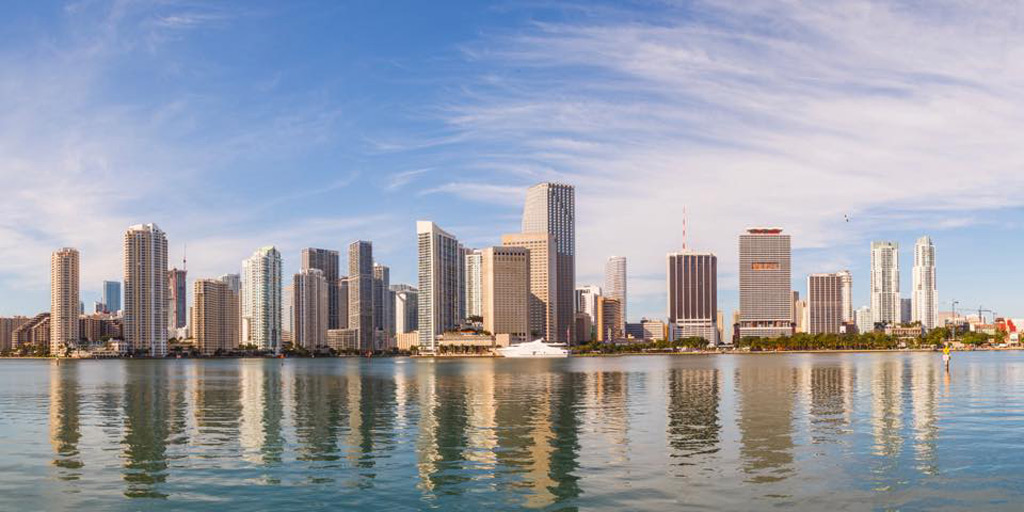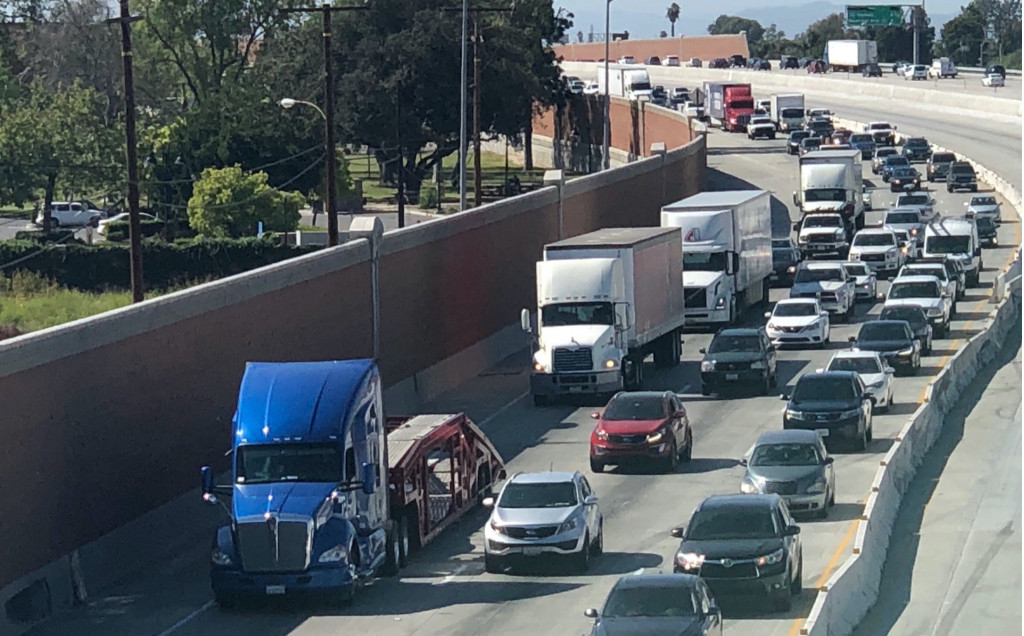Florida lawmakers have produced a bill that would have the state pave its roads with radioactive waste.
Now on the desk of Gov. Ron DeSantis, HB 1191 could compel the Florida Department of Transportation to study the use of phosphogypsum—a radioactive byproduct of fertilizer production—as a paving material, according to an NPR report.
The bill, which is reportedly being opposed by conservation groups, sets an April 1, 2024 deadline for Florida’s transportation department to make a recommendation on the use of phosphogypsum. If approved, the material would be used alongside other aggregates like crushed stone, gravel, and sand.
Florida is a major producer of fertilizer, and that leaves a lot of phosphogypsum as waste. Phosphorous is an important component of fertilizer, helping plants to grow strong roots and increasing crop productivity, according to NPR. To get it, phosphate rock is dissolved in sulfuric acid to make phosphoric acid.

Miami skyline – Image via City of Miami Government
This commonly used production process, which dates back to the 1840s, isn’t very efficient, the report explains. For every ton of phosphoric acid produced, more than five tons of phosphogypsum waste is produced. The phosphogypsum is usually left in massive heaps—called “gypstacks”—that can be up to 200 feet high and span 800 acres. They’ve also been linked to problems like sinkholes. Which explains why lawmakers are so eager to make use of the stuff.
However, phosphogypsum also contains “appreciable quantities” of the radioactive element uranium and other radioactive elements produced through the natural decay of uranium, according to the EPA. Uranium decay forms radium-226, which in turn decays to form radon, a cancer-causing radioactive gas. These elements are present in the original phosphate rock, but the fertilizer production process concentrates them, making phosphogypsum more radioactive than the original rock, according to the EPA.

Big rigs in traffic
The NPR report cites a fertilizer-industry trade group that claims using the material wouldn’t lead to radiation exposure beyond current EPA limits, and Chinese researchers that are “optimistic” about the ability of a new recycling process to remove radioactive material, with the caveat that more research is required.
The EPA doesn’t allow use of phosphogypsum in road construction, a policy that’s been in place almost continuously for 30 years (the ban was briefly lifted during the Trump administration). The agency told NPR that Florida will have to apply for approval. So while road builders have tried some unorthodox materials over the years, they might not get a chance to pave Florida highways with phosphogypsum.

stromectol australia – purchase atacand where to buy carbamazepine without a prescription
buy isotretinoin 20mg online – purchase zyvox generic linezolid oral
amoxicillin usa – ipratropium oral ipratropium 100mcg us
generic zithromax 250mg – nebivolol 20mg oral bystolic over the counter
where to buy omnacortil without a prescription – buy progesterone without prescription buy prometrium 100mg pills
lasix 40mg without prescription – purchase piracetam online betamethasone 20gm tablet
buy generic augmentin 1000mg – ketoconazole oral purchase duloxetine for sale
augmentin 625mg cheap – buy ketoconazole 200 mg generic buy duloxetine without prescription
order viagra 100mg online cheap – generic sildenafil 100mg tadalafil canada
buy cialis 40mg generic – real cialis sildenafil price
atorvastatin 40mg without prescription – zestril 2.5mg pills buy zestril generic
methylprednisolone 8 mg otc – buy pregabalin 75mg purchase aristocort online
order desloratadine 5mg for sale – order dapoxetine 30mg sale order dapoxetine 90mg online cheap
buy cytotec online cheap – buy misoprostol online purchase diltiazem generic
zovirax 400mg brand – allopurinol price crestor 20mg brand
motilium online – buy cyclobenzaprine pills for sale order flexeril online
generic domperidone – cheap motilium cyclobenzaprine order online
inderal tablet – order generic methotrexate 10mg order methotrexate 2.5mg generic
coumadin 2mg uk – order warfarin 5mg pill hyzaar order
buy mobic cheap – buy tamsulosin 0.4mg pills order generic tamsulosin 0.2mg
order ondansetron 4mg generic – buy zocor 10mg pills simvastatin 20mg us
buy valacyclovir 500mg without prescription – proscar 5mg brand fluconazole 200mg usa